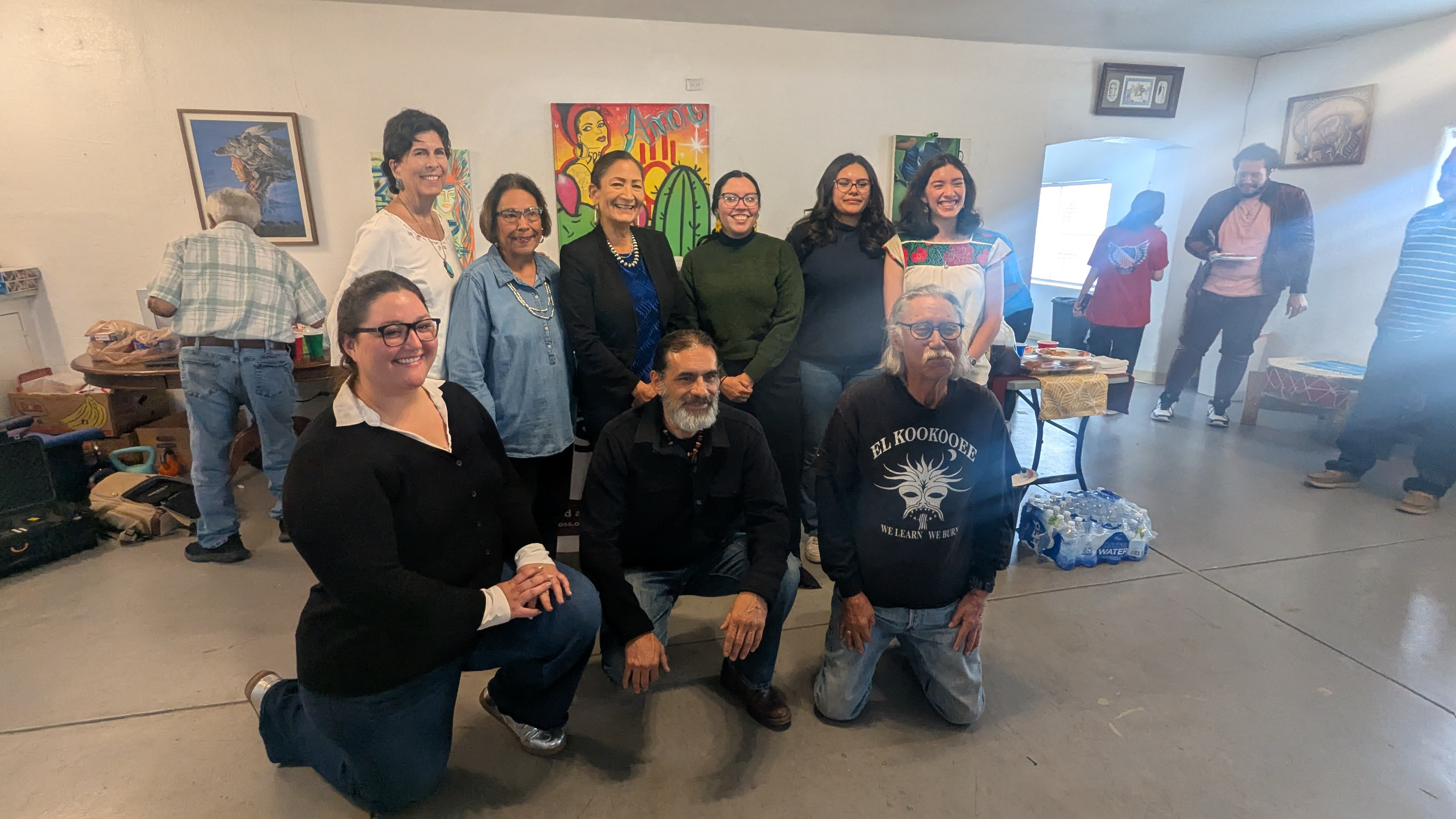
- Details
- By Native News Online Staff
Native Vote. Deb Haaland, candidate for New Mexico governor, met Sunday with community leaders from the South Valley Regional Acequia, alongside State Senator Linda Lopez and Representative Patricia Roybal Caballero, to announce her support for securing annual and permanent funding for land grants and acequias.
The meeting focused on the importance of protecting and sustaining New Mexico’s traditional land and water management systems. Acequias—centuries-old communal irrigation networks—play a vital role in safeguarding natural and water resources in northern New Mexico while ensuring that southern communities maintain access to critical water flows.
“Acequias are living history—neighbors caring for land and water together. Protecting them will not only support our northern communities, it will strengthen local governance and preserve New Mexico’s heritage,” said Haaland. “It’s essential infrastructure for a changing environment. Let’s invest in what makes our state strong.”
Since launching her campaign for governor, Haaland has visited land grant communities and acequia associations across the state to discuss traditional stewardship practices and local needs. Earlier this year, she visited Morphy Lake in Mora County to observe the impacts of wildfire on the watershed.
Haaland has also outlined a broader plan to strengthen New Mexico’s water infrastructure. Her proposals include modernizing groundwater management in overdrawn basins, expanding statewide stormwater capture systems, and providing competitive grants for farmers to adopt modern irrigation technologies—initiatives she discussed at the Next Generation Water Summit this summer.
As U.S. Secretary of the Interior, Haaland championed policies to support rural and traditional communities. Under her leadership, acequias were recognized as traditional community water organizations eligible for water management engagement. The Bureau of Land Management also backed the Land Grant-Mercedes Traditional Use Recognition and Consultation Act, legislation Haaland previously co-sponsored in Congress to improve coordination between federal agencies and New Mexico’s land grant communities.
During her tenure, she oversaw hundreds of millions of dollars in federal investments in rural water infrastructure projects and directed funding to the New Mexico Acequia Association to bolster statewide water resilience.
More Stories Like This
Native News Weekly (August 25, 2024): D.C. BriefsMonday Morning (March 2, 2026): Articles You May Have Missed This Past Weekend
Native News Weekly (March 1, 2026): D.C. Briefs
Scope Narrowed, Report Withheld: Questions Mount Over Michigan Boarding School Study
Zuni Youth Enrichment Project Announces Family Engagement Night and Spring Break Youth Programming
Help us defend tribal sovereignty.
At Native News Online, our mission is rooted in telling the stories that strengthen sovereignty and uplift Indigenous voices — not just at year’s end, but every single day.
Because of your generosity last year, we were able to keep our reporters on the ground in tribal communities, at national gatherings and in the halls of Congress — covering the issues that matter most to Indian Country: sovereignty, culture, education, health and economic opportunity.
That support sustained us through a tough year in 2025. Now, as we look to the year ahead, we need your help right now to ensure warrior journalism remains strong — reporting that defends tribal sovereignty, amplifies Native truth, and holds power accountable.
 The stakes couldn't be higher. Your support keeps Native voices heard, Native stories told and Native sovereignty defended.
The stakes couldn't be higher. Your support keeps Native voices heard, Native stories told and Native sovereignty defended.
Stand with Warrior Journalism today.
Levi Rickert (Potawatomi), Editor & Publisher


